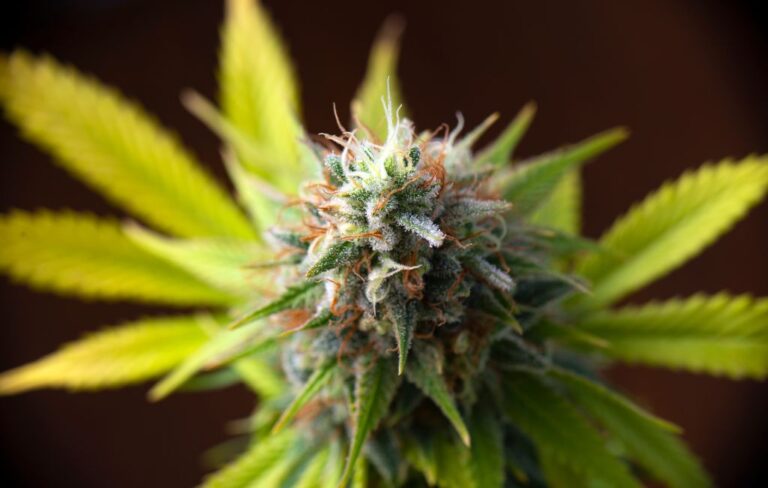Organic THCa: Nature’s Pure Remedy
In recent years, the interest in organic compounds derived from cannabis has surged, with THCa (Tetrahydrocannabinolic Acid) gaining significant attention. As a non-psychoactive cannabinoid, THCa offers a range of potential health benefits without the high associated with THC. This article explores the properties, benefits, and applications of organic THCa, highlighting its role as a natural remedy.
Understanding THCa
THCa is a cannabinoid found in raw and live cannabis plants. Unlike THC, THCa does not produce psychoactive effects. This is because THCa must undergo decarboxylation, a process triggered by heat, to convert into THC. This transformation is what typically occurs when cannabis is smoked or vaporized.
In its raw form, THCa is abundant in fresh cannabis plants. It is often extracted for use in various health and wellness products, offering a natural alternative for those seeking therapeutic benefits without intoxication.
Extraction and Consumption
Organic THCa can be extracted using several methods, including:
- Cold pressing: This method preserves the integrity of the cannabinoid by avoiding heat.
- Solvent extraction: Utilizes organic solvents to isolate THCa from the plant material.
- CO2 extraction: A popular method that uses carbon dioxide under high pressure to extract cannabinoids.
Once extracted, THCa can be consumed in various forms, such as tinctures, capsules, and raw cannabis juice. These methods allow users to experience the benefits of THCa without the psychoactive effects of THC.
Health Benefits of THCa
Research into THCa is still in its early stages, but preliminary studies and anecdotal evidence suggest several potential health benefits:
Anti-Inflammatory Properties
THCa has shown promise as an anti-inflammatory agent. A study published in the “Journal of Pharmacology and Experimental Therapeutics” indicated that THCa could reduce inflammation in animal models. This suggests potential applications for conditions like arthritis and other inflammatory diseases.
Neuroprotective Effects
Research has also explored THCa’s neuroprotective properties. A study in “Phytomedicine” highlighted its potential in protecting brain cells from oxidative stress, which could be beneficial for neurodegenerative diseases such as Alzheimer’s and Parkinson’s.
Anti-Nausea and Appetite Stimulation
THCa may help alleviate nausea and stimulate appetite, making it a potential option for patients undergoing chemotherapy or those with eating disorders. Its non-psychoactive nature makes it suitable for individuals who wish to avoid the high associated with THC.
Case Studies and Real-World Applications
Several case studies have demonstrated the practical applications of THCa in medical settings:
Case Study: THCa for Epilepsy
A notable case involved a young patient with severe epilepsy who experienced a significant reduction in seizures after incorporating THCa into their treatment regimen. This case highlights the potential of THCa as an adjunct therapy for seizure disorders.
Case Study: THCa for Chronic Pain
Another case study focused on a patient with chronic pain who found relief through THCa tinctures. The patient reported reduced pain levels and improved quality of life without the side effects commonly associated with traditional pain medications.
Statistics and Market Trends
The market for organic cannabis products, including THCa, is expanding rapidly. According to a report by Grand View Research, the global legal marijuana market size was valued at USD 9.1 billion in 2020 and is expected to grow at a compound annual growth rate (CAGR) of 26.7% from 2021 to 2028. This growth is driven by increasing consumer awareness and demand for natural health solutions.
In the United States, the legal cannabis market is projected to reach USD 41.5 billion by 2025, with organic products playing a significant role in this expansion. Consumers are increasingly seeking organic options, driven by a desire for purity and sustainability.
Challenges and Considerations
While the potential benefits of THCa are promising, several challenges remain:
Regulatory Hurdles
The legal status of cannabis and its derivatives varies widely across regions, impacting the availability and research of THCa. Navigating these regulations can be complex for both consumers and producers.
Need for Further Research
Although preliminary studies are encouraging, more research is needed to fully understand the therapeutic potential and safety profile of THCa. Clinical trials and long-term studies will be essential in validating its efficacy.
Conclusion
Organic THCa represents a promising natural remedy with a range of potential health benefits. From its anti-inflammatory and neuroprotective properties to its applications in managing nausea and chronic pain, THCa offers a non-psychoactive alternative for those seeking relief. As research continues and the market for organic cannabis products grows, THCa is poised to play an increasingly important role in natural health and wellness solutions.





